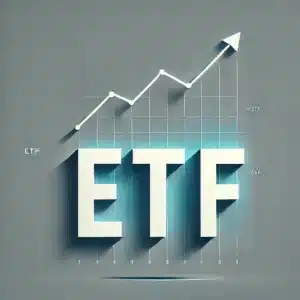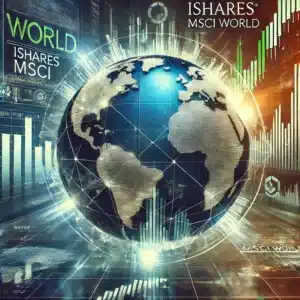This iShares MSCI World review will tackle what it’s all about, what the costs are, performance, and the advantages and disadvantages.
In 2000, iShares was established as a supplier of exchange-traded funds under the administration of BlackRock, the largest asset management firm globally. iShares has expanded to rank among the world’s biggest providers of ETFs, which comprises various industries, asset classes, and investment approaches.
If you are looking to invest as an expat or high-net-worth individual, which is what I specialize in, you can email me (advice@adamfayed.com) or WhatsApp (+44-7393-450-837).
The iShares MSCI World ETF and the iShares MSCI World UCITS ETF are two well-known iShares ETFs, which will be covered in this review.
These investments are not meant for residents in the US and Canada.
The facts could change from the time of writing, so it’s wise to not execute any investments based on this review alone.
iShares MSCI World Review
iShares MSCI World ETF (URTH)
Following the performance of the MSCI World Index, the iShares MSCI World ETF provides exposure to a global pool of developed market companies. It was rolled out on Jan. 10, 2012.
The MSCI World is a worldwide stock market index that monitors equities from 23 developed market countries.
The MSCI World ETF’s net assets are currently worth $3.68 billion.

The fund makes distributions twice a year. Its top holdings include major tech companies Microsoft at nearly 4.6%, Apple at 3.9%, and Nvidia at 3.4%. No wonder the technology sector also has the largest allocation at 23.6%, trailed by financials at 15.3%.
Meanwhile, the industrials and healthcare industries both tied for 11.9%.
Geographically, the fund predominantly invests in US-based companies, followed by those in Japan and the UK.
MSCI World ETF Performance
As of June 30, 2024, the fund has logged solid performance, hitting a 1-year average annual return of about 20.3% and 11.2% since kickoff.
Comparably, its market price has done well, returning 20.4% in the first year and 11.2% in total since launch.
For cumulative total returns, the iShares MSCI World ETF logged roughly 11.8% for six months, 20.3% for a year, and 274.9% since fund rollout.
MSCI World ETF Fees
The fund’s 0.24% expense ratio includes 0.24% in management fees.
iShares MSCI World UCITS ETF
USD Distributing
This share class offers investors exposure to select global companies within 23 markets. It was launched on Oct. 28, 2005.
The fund pays income, like dividends, to investors on a quarterly basis.
It has net assets worth roughly $7.12 billion and now trades on markets such as the London Stock Exchange. The ETF is accessible for SIPPs and Individual Savings Account.
As of July 10, 2024, the top three holdings are Microsoft at 4.8%, NVIDIA at 4.9%, and Apple at 5%.
With almost 72% invested in the United States and 5.7% in Japan, the sector allocations are as follows: technology is at 26.5%, financials at 14.7%, and healthcare at 11.5%.
Charges
There are no exit, entry, and performance fees, while recurring fees are 0.50%.
The expense ratio is also 0.50%.
Performance
As of end-June, total returns on an annual basis hit about 20% for 1 year and 7.9% since launch.

Cumulatively, aggregate earnings reached 11.6% for 6 months, 20% for 1 year, and 310.8% from rollout.
USD Accumulating
As of July 10, 2024, the net assets of the share class are $78.8 billion, while those of the entire MSCI World UCITS ETF are $81.3 billion.
The share class was unveiled on Sept. 25, 2009. It qualifies for SIPP as well as ISA.
As of July 10, Apple stands at 5%, NVIDIA at 4.9%, and Microsoft at 4.8% among the top holdings. Tech is allocated at nearly 26.5%, financials at 14.8%, and healthcare at 11.5%. Almost 72% of investments are made in the US and 5.7% in Japan.
Performance
As of June end, aggregate yearly returns hit about 20.3% for 12 months and 10.1% since debut.
On a cumulative basis, total yield stood at 11.8%, 20.3%, and 312.9% for 6 months, 1 year, and since inception, respectively.
Charges
There are also no exit, entry, and performance charges. Meanwhile, ongoing fees and overall expense ratio are both 0.20%.
Is MSCI World a good investment?
Pros of iShares MSCI World
- iShares uses BlackRock’s expertise to create ETFs.
- They provide resources to aid investors in using iShares ETFs to manage their portfolios.
- The MSCI World index is a key global stock benchmark for ETFs.
- The opportunity helps you spread out your investments and increase them over time.
- The iShares MSCI World ETF so far has a good track record. Being one of the biggest ETFs that tracks the index, it has a high volume of trading. Such is advantageous for investors.
Cons of iShares MSCI World
- The fund primarily concentrates on American stocks, trimming exposure to other market firms, which some investors may prefer for a more diverse international portfolio.
- It is exposed to concentration risks should its significant assets in technology underperform.
- Currency fluctuations could indirectly affect investors’ returns on their investments in this worldwide fund.
Pained by financial indecision?

Adam is an internationally recognised author on financial matters with over 830million answer views on Quora, a widely sold book on Amazon, and a contributor on Forbes.



